A who's who of Iran's presidential candidates
Presidential candidates in Iran have to go through a thorough but somewhat secretive vetting process before they're allowed to stand for election, as explained here.
This time, six men have been approved to run. Broadly speaking, they can be put into two camps: conservatives/hardliners and reformists/moderates.
We'll look at each candidate's background, their ideas, and which two candidates are most likely to be the last men standing.
Ebrahim Raisi (conservative/hardliner)
Seyed Ebrahim Raisi was born in 1960 in the conservative stronghold of Mashad. Raisi was given an Islamic education from the age of 15, and holds a PhD in Islamic law from Shahid Motahari University.
 |
|
| Raisi holds a PhD in Islamic law [AFP] |
As a prosecutor in Tehran in 1985, Raisi was involved in what some call one of the darkest moments of modern Iranian history.
In 1988, the Supreme Leader issued an order to execute political opponents and prisoners of war, which resulted in as many as 5,000 executions.
These executions were decided by the "death commissions", and were carried out without due process. In 2016, an audio file was leaked where Grand Ayatollah Montazeri could be overheard discussing the executions with four judges, one of whom was Ebrahim Raisi.
In the recording, Montazeri criticises the judges, telling them that "history will write [them] down as criminals".
Despite being initially regarded as the strongest challenge to Rouhani's re-election, Raisi is rumoured to have the Supreme Leadership as his final goal. In fact, Khamenei is said to favour him as a successor.
His performance in the debates has been rather poor, scoring second, well behind Rouhani. He has kept a low profile and has failed to shine either in his rhetoric or his proposed policies. He's promised to remain committed to the Joint Comprehensive Plan of Action (JCPOA) nuclear deal between Iran and the five permanent members of the UN Security Council plus Germany.
Mostafa Mir-Salim (conservative)
Mostafa Aqa Mir-Salim (b 1947) is a mechanical engineer by training. A francophile, he obtained his degrees at the Université de Poitiers in France, and is married to a French woman. After the Islamic Revolution of 1979, Mir-Salim was appointed chief of the Shahrbani or urban police.
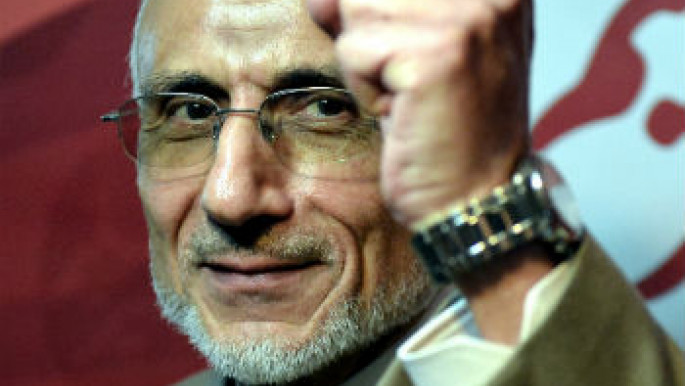 |
|
| Mir-Salim is a mechanical engineer by training [Anadolu] |
Between 1982 and 1989, he served as then-president Ayatollah Ali Khamenei's adviser. He fulfilled this same role in President Akbar Rafsanjani's first term as well, between 1989 and 1993. Between 1994 and 1997 he was Iran's Minister of Culture and Islamic Guidance.
Mir-Salim is known as a very staunch conservative. He sees culture as a vehicle for Islamic ideology, and during his tenure as culture minister repeatedly shut down reformist media outlets. He's sceptical of the JCPOA nuclear deal, saying that it failed to lift sanctions and brought Iran more ill than good.
However, he's also said that the government should be open to criticism from the opposition if it is to continue to function.
| Read more: A step by step guide to Iran's presidential elections | |
Mohammad Ghalibaf (conservative/hardliner)
Mohammad Bagher Ghalibaf (b 1961) serves as an example of the ethnical, cultural and political diversity of Iran.
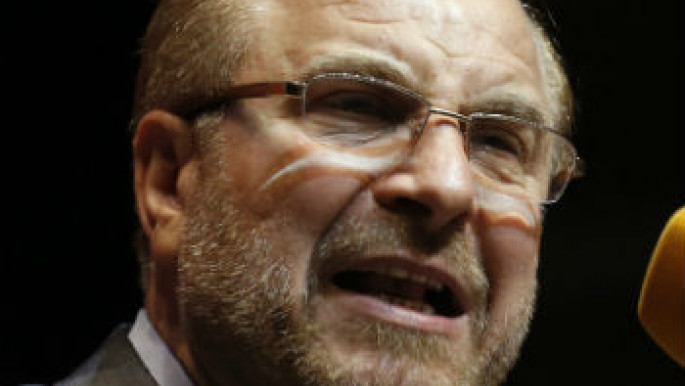 |
|
| Ghalibaf is mayor of Tehran, a position once held by Mahmoud Ahmedinejad [AFP] |
Like Raisi, he was born near Mashad, but he represents the civil, modern side of Iranian conservatives. Son of a mixed Kurdish-Persian marriage, this well-dressed former military man is arguably the most popular figure of the hardliners running in the 2017 election.
He is currently the elected mayor of Tehran and a professor at the University of Tehran. His membership in the Islamic Revolutionary Guard Corps, mayorship of Tehran, academic background and populist approach have reminded many observers of former President Ahmadinejad. This is his third presidential run.
He is the only hard-liner able to appeal both to conservative nationalists (due to his military past) and to a subset of the young population. In charge of the police since the 1999 student protests, he was responsible for maintaining public order and is regarded by conservatives to have done a very good job in firmly addressing the potentially dangerous 2003 student protests.
Whether Ghalibaf claims to have acted like a moderate or a hardliner during the protests depends on whom he is speaking to. Interestingly, two contradictory recordings have been leaked where Ghalibaf claims to both have lobbied for the use of guns against students, and to have confronted the Ahmadinejad government about this.
In the first recording, he is talking to hard-line Basij students. In the second, he's talking to the reform-leaning Sharif's University student body.
Ghalibaf has been the most competitive hard-liner in the televised debates, compensating for the lack of energy of the main conservative candidate, Raisi. In the first debate, Ghalibaf directly challenged Rouhani about his pledge of creating four million jobs.
He also accused Eshaq Jahangiri of being a token candidate in order to support Rouhani in the debates. He was effectively confronted by Jahangiri, who accused him of not being able to manage the trash in Tehran, implying that managing a country was well beyond his capabilities.
Ghalibaf, like Raisi, generally supports the nuclear deal, although he thinks it needs improvement. His opponents have criticised him for his aggressive tone.
Update: On Monday May 15, just days before the first round of voting, Ghalibaf pulled out from the race, and urged his supporters to throw their weight behind Raisi - a significant boost for the hardliners' favourite.
"What is important now is preserving the interests of the people, the country and the revolution," Ghalibaf told the Fars news agency.
| A guide to the reformist candidates follows |
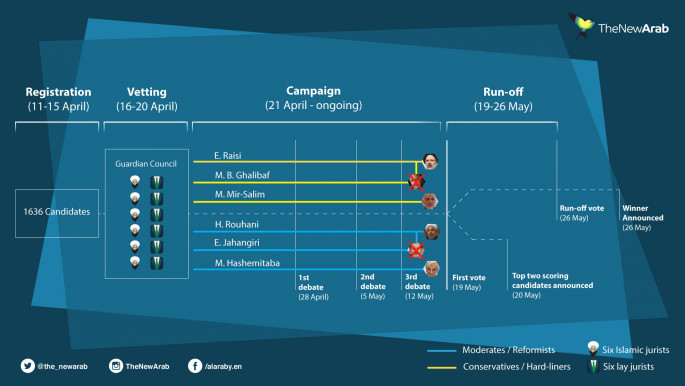 |
Eshaq Jahangiri (reformist)
Eshaq Jahangiri Kouhshahi (b 1958) is Iran's sitting first vice-president under Hassan Rouhani. He was educated as a physicist, and holds a PhD in industrial management. He has a long history in politics, having been elected as a member of parliament from 1984 to 1992.
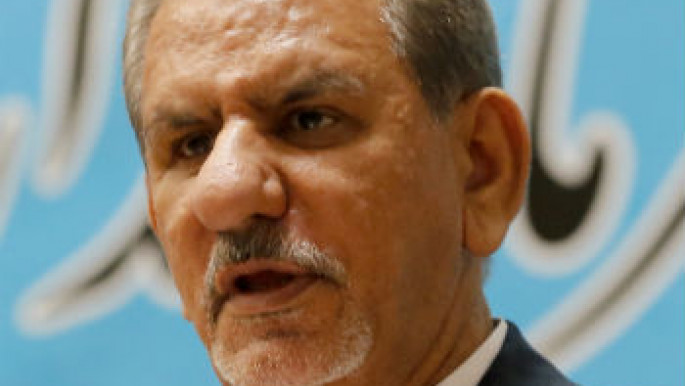 |
|
| Jahangiri is a close ally of President Rouhani [AFP] |
After this, he was appointed as governor of Isfahan, Iran's second-largest city. He held this job until 1997.
He became Minister of Mines and Metals and later of industries and mines.
It's been observed that Jahangiri mainly got into the race to support his boss, President Rouhani. He's a reformist with relatively moderate views: he supports the JCPOA nuclear deal and emphasises the need for economic growth, particularly when it comes to technology.
He also wants the government to focus on fighting corruption. Jahangiri performed well in the first two presidential debates, with some even arguing that he's overshadowing his boss. However, regardless of his performance, he's still expected to step aside in favour of Rouhani quite soon.
Update: On Tuesday May 16, Jahangiri announced he was pulling out of the race and urged his supporters to get behind the re-election of President Rouhani.
"I've delivered the responsibility that was on my shoulders," he told a huge crowd. "Together, we will vote for Rouhani."
Mostafa Hashemitaba (reformist)
Seyed Mostafa Hashemitaba (b 1946) has experience in many relevant positions within Iran's state structure. He has been deputy to the prime minister, Minister of Industries and head of Iran's Olympic Committee.
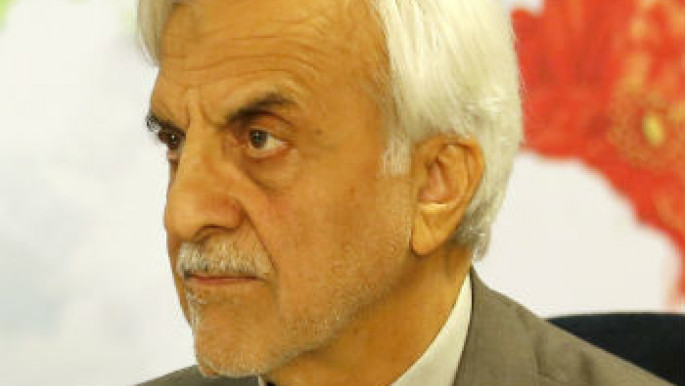 |
|
| Hashemitaba maintains a centrist line [AFP] |
He's one of the founders of the Executives of Construction-party, a business-focused wing within the reformist camp.
Hashemitaba has received little attention during the debates and has maintained a centrist line, defending at times the current administration. His focus is mostly on the economy and job creation, and sees a decrease of tensions with the West - including the nuclear deal, which he supports - as a cornerstone of economic growth.
In a campaign speech, he also focused on the environment, and he has called attention to the need for banking reform. In case he doesn't manage to garner enough support, Hashemitaba has said he would back Hassan Rouhani.
Hassan Rouhani (moderate reformist) - incumbent
Hassan Rouhani (b 1948) is Iran's current president. He is a cleric, a lawyer and an academic, and holds a PhD in constitutional law from Glasgow Caledonian University. He was early to join Ayatollah Ruhollah Khomeini's Islamic movement, and was arrested multiple times in the 1960s and 1970s for speeches against the Shah.
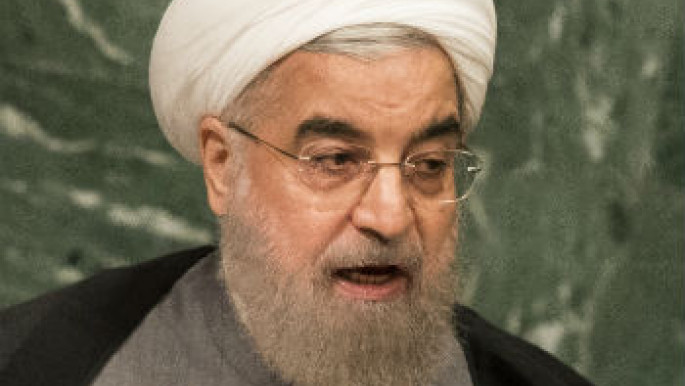 |
|
| Rouhani was an architect of the Iran nuclear deal [Getty] |
In 1984, he became a member of parliament in Tehran and remained so until 2000. Between 1992 and 2000, he was deputy speaker of the parliament. Since then, he has worked, among other things, as Iran's chief nuclear negotiator.
Rouhani is also a member of the Assembly of Experts, a deliberative body within Iran's government that has the power to select and, in theory, dismiss the Supreme Leader.
Rouhani came to power in 2013 as a moderate reformist who promised better economic growth and better relations with foreign powers. His crowning achievement so far has been the JCPOA nuclear deal. However, this is also his biggest vulnerability: his conservative opponents have criticised him repeatedly for failing to get the economy back up to speed fast enough, and appearing weak during the nuclear deal negotiations.
Ironically, opponents of former President Obama accused the US president of the same thing. In recent debates, Rouhani has hit back hard against his critics, which include high-standing members of the Revolutionary Guard. His spirited defence of the JCPOA deal, which he sees as in line with morality and Islam, will go down well with his base - but alienates staunch conservatives.
Who is going to win?
At this point, it's difficult to determine anyone's chances of winning in the first round. There are too many candidates and the vote will likely be spread out too thinly if all six candidates remain in the race during the first round of voting.
It's expected that some of the candidates will drop out of the race soon, and endorse the more popular candidate in their political camp. At this point, it's quite likely that it will come to a final showdown between incumbent moderate Rouhani and populist conservative/hardliner Ghalibaf.
Behnam (Ben) Gharagozli received his BA with Highest Distinction in Political Science from UC Berkeley and his JD cum laude from UC Hastings College of the Law. While at UC Hastings, he served as Development Editor of the Hastings International and Comparative Law Review.
Follow him on Twitter: @BenGharagozli
Jon Roozenbeek is a PhD candidate at the Department of Slavonic Studies at the University of Cambridge. He studies Ukraine's media after 2014. Before coming to Cambridge, he worked as a freelance writer, editor and journalist.
Adrià Salvador Palau Is a PhD candidate in the Distributed Information and Automation Laboratory at the University of Cambridge. He has written several journalistic articles about politics and international relations. He is interested in how data science can be used to better understand political dynamics.
Follow him on Twitter: @adriasalvador





 Follow the Middle East's top stories in English at The New Arab on Google News
Follow the Middle East's top stories in English at The New Arab on Google News


